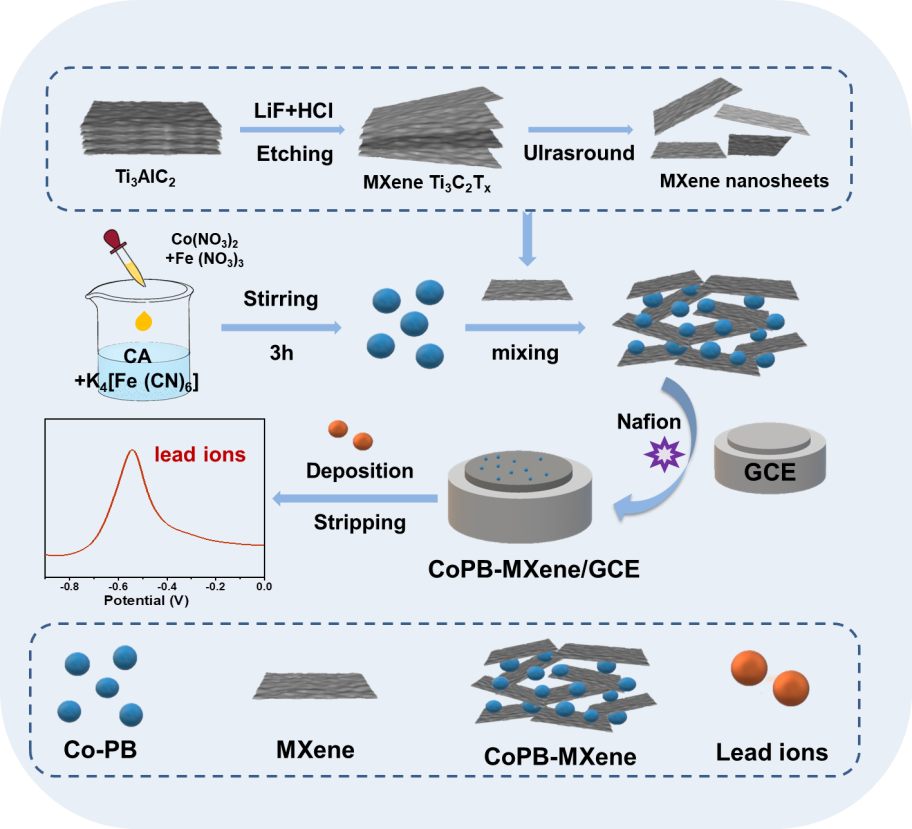Portable Electrochemical Sensor Designed for Lead Ion Detection
|
As a representative heavy metal ion pollutant, Pb2+ seriously affects the ecological environment and human health even at low concentration due to its high toxicity and easy accumulation in plants and animals. A direct and real-time detection for trace levels of Pb2+ appear to be particularly important in environmental waters.
In this study, the researchers developed a portable electrochemical sensor based on CoPB combined with MXene. The composites of CoPB-MXene exhibited superior conductivity and stability, enabling a linear detection range of 1-200 nM at low deposition potential, with an ultra-low detection limit of 0.97 nM.
After investigating the influence of various operating conditions, including deposition time, buffer solution, and pH value, on the sensor performance, the researchers determined optimal conditions, which helped CoPB-MXene/GCE exhibit excellent repeatability, high anti-interference, and remarkable reproducibility.
What impressed them most was that the sensor's response current remained at 89.23% of the initial value after four weeks. Besides, CoPB-MXene/GCE demonstrated high accuracy in the detection of lead ions in different water samples, such as bottled water, tap water, groundwater, and lake water.
The results of this study pave the way for the application of CoPB-MXene/GCE sensor in detecting lead ions.

Schematic preparation process of the sensor and electrochemical detection of Pb2+. (Image by GUO Xinyue)
